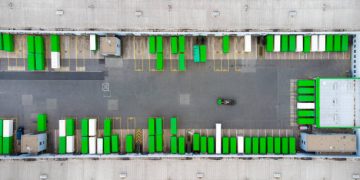Dr. Nguyen Manh Hung, Senior Program Manager for Logistics and Supply Chain Management at RMIT, emphasizes the proactive role of businesses in driving green transformation within manufacturing.
Increasing customer demand for environmentally friendly products is prompting manufacturers and suppliers worldwide to adopt new standards and adjust their operations. This shift is particularly noticeable in developed nations, where consumers are increasingly conscious of the environmental impact of their purchases. In Vietnam, a survey conducted by Rakuten Insight in 2023 revealed that up to 84% of consumers are willing to pay more for sustainable products.
The European Union, a key export market for Vietnam, has implemented stringent environmental regulations for imported goods and services. This regulatory landscape underscores the importance of sustainability as a competitive advantage in global markets.
Buyers in supply chains play a pivotal role in overseeing and promoting green initiatives. They drive efforts to ensure that final products and services align with market demands for sustainability.
Globally recognized supply chain leaders such as Walmart, H&M, Uniqlo, Unilever, Apple, and Nestlé are actively influencing sustainability practices. In Vietnam, companies like VinEco, Vinamilk, Viet Thang Textile, Vinatex, and Thaco are among those making significant investments in eco-friendly processes.
For instance, major apparel retailers have mandated their Vietnamese suppliers to use organic materials, reduce energy and water consumption, and implement waste recycling programs. This has spurred local manufacturers to adopt more sustainable production methods.
VinEco has also made substantial investments in sustainable agriculture in Quang Ninh and Ha Nam provinces, enhancing local farming capabilities and supplying certified “green and clean” vegetables across the country.
To ensure environmental accountability across their supply chains, buyers are increasingly implementing environmental standards and performance expectations covering emissions, waste management, water usage, and energy efficiency.
Collaborative efforts between buyers and suppliers include joint workshops to enhance environmental management capabilities and knowledge sharing.
Green financing initiatives are gaining traction as financial incentives for suppliers to commit to sustainability practices. Larger corporations with robust resources are supporting smaller local manufacturers in their green transformation efforts through avenues such as green bonds and sustainable development loans.
According to a survey conducted by RMIT involving 437 global manufacturers, businesses that effectively communicate their environmental goals and methodologies can enhance market share and revenue.
The growing pressure from environmentally conscious consumers is driving continuous process innovation within businesses. Strategic partnerships and collaborations between companies and their customers are increasingly seen as vital in addressing environmental challenges.
Overall, the evolving relationship between green consumers and manufacturers is fostering innovation that can lead to both financial improvements and cost efficiencies over time.
Your go-to source for supply chain logistics news updates: The Supply Chain Report. Enhance your international trade knowledge at ADAMftd.com.
GreenSupplyChains #SustainableManufacturing #EcoFriendlyBusiness #GreenLogistics #EnvironmentalImpact #SustainabilityInVietnam #GlobalSupplyChain #GreenTrade #SustainableInnovation #EcoFriendlyProducts #GreenTransformation #SustainableProduction #SupplyChainSustainability #GreenBusinessGrowth #SustainableDevelopment















